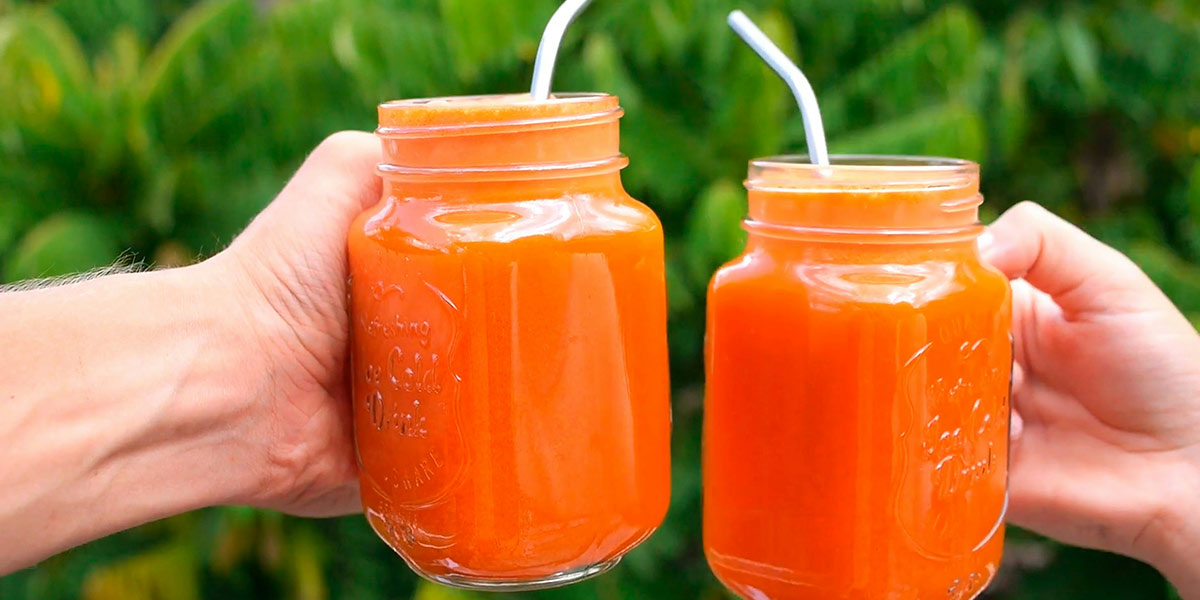Among modern kitchen appliances, both juicers and blenders are popular choices, but they differ significantly in functionality, nutritional output, and user experience. This article will analyze in detail why juicers are the superior choice in many aspects.

1. Higher Nutrient Absorption Efficiency
Juicers extract pure liquid nutrients by separating pulp and fiber, allowing the body to absorb vitamins, minerals, and enzymes more quickly:
-
Instant Nutrient Absorption: Juiced liquids are absorbed and utilized by the body within 15-20 minutes, bypassing complex digestion.
-
Reduced Digestive Burden: Ideal for those with weaker digestive systems (e.g., the elderly or those recovering from illness).
-
Higher Nutrient Concentration: The same amount of fruits and vegetables yields a more concentrated dose of vitamins and antioxidants when juiced.
2. Makes Consuming More Fruits and Vegetables Easier
Juicers simplify the process of consuming large quantities of produce daily:
-
Volume Compression: You can easily consume the equivalent of 2-3 pounds of fruits and vegetables in juice form—something that would be challenging to eat whole.
-
Diverse Combinations: Allows mixing ingredients that wouldn’t normally be eaten together (e.g., beetroot + apple + ginger).
-
Solves Picky Eating: Perfect for children or adults who dislike certain vegetables.

3. Benefits for Cleansing and Digestion
Unlike blenders, which retain all fiber, juicers offer unique health advantages:
-
Gut Rest: Removing insoluble fiber gives the digestive system a break, especially beneficial for those with sensitive digestion.
-
Detoxification: Pure fruit and vegetable juices effectively support the body’s natural detox processes.
-
Reduces Bloating: Many find juiced drinks cause less bloating than whole fruits or blended smoothies.
4. Ideal for Specific Groups
Juicers are particularly beneficial for:
-
Post-Surgery Patients: Need high nutrition with minimal digestive strain.
-
Cancer Patients: Helps maintain nutrient intake during chemotherapy.
-
Athletes: Quickly replenishes electrolytes and nutrients post-workout.
-
Weight Loss Seekers: Low-calorie, high-nutrient support for dieting.
-
Busy Professionals: A fast way to get essential nutrients in the morning.
5. Taste and Drinking Experience
Juicers also offer sensory advantages:
-
Smoother Texture: No grainy or fibrous mouthfeel—more pleasant to drink.
-
Flexible Temperature Control: Juices can be served warm (e.g., ginger juice), while blended drinks are typically cold.
-
More Visually Appealing: Clear, vibrant juices look more enticing than thick, blended beverages.

6. Economic and Environmental Considerations
While blenders may seem more economical (using the whole ingredient), juicers have their own advantages:
-
Pulp Reuse: Leftover pulp can be used in baking, composting, or making vegetable stock.
-
Reduces Waste: Lets you use slightly overripe produce by juicing only the usable parts.
-
Long-Term Health Savings: Better nutrient absorption may reduce future medical costs.
Conclusion
While blenders have their uses (e.g., making smoothies or sauces), juicers provide a more efficient, easily absorbed, and modern-lifestyle-friendly solution for optimal nutrition. For health-conscious families looking to improve their dietary quality, investing in a high-quality juicer is a smart choice.
The best approach may be owning both appliances for different needs. However, for consumers who must choose one—especially those seeking dietary improvements for better health—a juicer is undoubtedly the better option.



Leave a comment
This site is protected by hCaptcha and the hCaptcha Privacy Policy and Terms of Service apply.